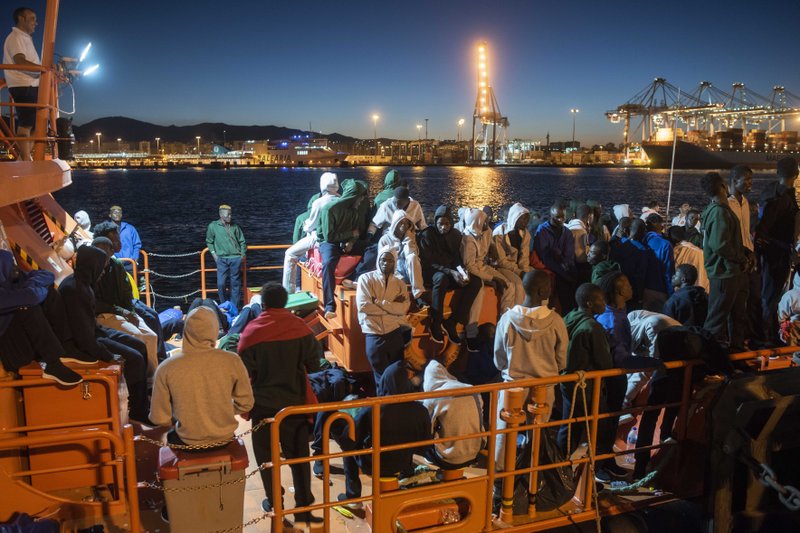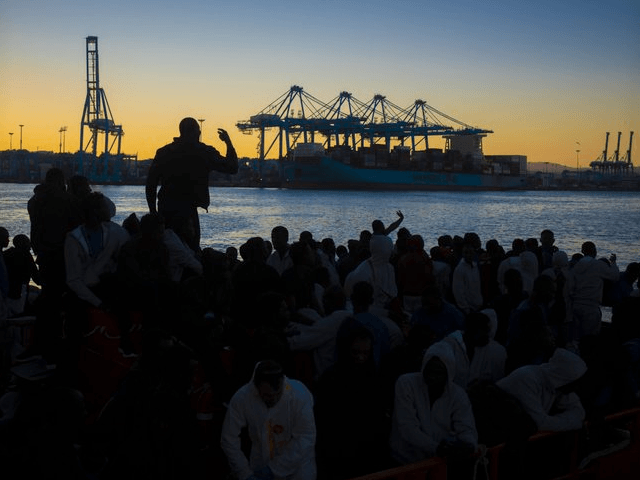MADRID (AP) — Around 800 migrants stormed border fences separating Spain’s North African enclave of Ceuta from Morocco to get into Europe, police said Thursday.
Spain’s Civil Guard said 602 migrants made it onto Spanish soil in a massive assault on high, barbed-wire fences shortly after dawn.
Migrants cut holes in the fences and threw feces and quicklime, a skin irritant, at police officers trying to hold them back, the Civil Guard said in a statement.
They also threw stones at police vehicles, breaking windows, and hurled makeshift flamethrowers at police officers.
The police statement said 16 migrants were taken to the hospital, while five of 15 police hurt were also hospitalized.
The Spanish Red Cross said in a tweet that 132 migrants were hurt in the mass charge.

In this photo taken late Wednesday, July 25, 2018, migrants spend the night onboard a Spanish Maritime Rescue Service boat docked at the port of Algeciras, southern Spain, after being rescued in the Strait of Gibraltar. (AP Photo/Marcos Moreno)
Sub-Saharan Africans living illegally in Morocco try to get to Europe each year by climbing rows of 6-meter (20-feet) high fences surrounding Ceuta and Melilla, Spain’s other North African enclave. Those who make it across head for crowded, temporary migrant accommodation centers. They are eventually repatriated or let go.
Thursday’s assault added to pressure on Spanish authorities from a recent wave of migration, with on average hundreds of migrants crossing the Mediterranean Sea on unsafe boats each day.
Spain’s Maritime Rescue Service said it picked up 332 people in the Mediterranean on Thursday — 232 on 19 boats in the Strait and 100 in two boats further east. On Wednesday, it rescued 424 people.
The International Organization for Migration says so far this year more than 22,700 migrants have arrived in Spain — three times more than in the same period last year.
Almost 20,000 of them arrived by sea, as good weather allowed more crossings on the short route across the Strait of Gibraltar and a recent crackdown by Libyan authorities had led migrants to choose other routes.

COMMENTS
Please let us know if you're having issues with commenting.